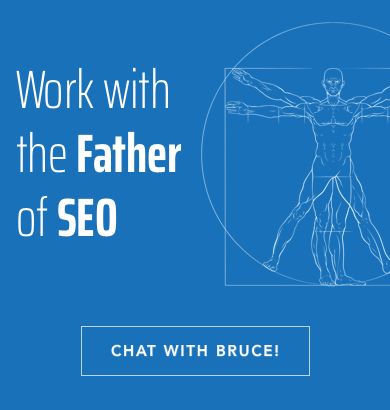How SEO Helps Home Improvement Businesses Succeed Across Key Service Areas

That’s why SEO for home improvement professionals matters. Not in some abstract, marketing-jargon kind of way—but in a real, practical sense. It helps you show up where people are actually looking. It builds trust before they even pick up the phone. And when it’s done right, SEO doesn’t just bring in more traffic—it brings in the right kind of traffic: people who are ready to hire.
Contractors who invest in strong, local SEO tend to stay busy. The ones who don’t? They’re often stuck waiting on word-of-mouth. And in today’s world, that’s not enough.
This article explores how SEO strengthens success across nine core service verticals in the home improvement space.
Roofing Installation and Repair
Roofing companies compete for high-value clicks from urgent customers—SEO ensures they rank when storms hit and roofs leak. Targeting localized and seasonal keywords like “emergency roof repair near me” increases visibility exactly when it’s needed. Technical SEO ensures fast-loading pages, while schema helps Google identify roof services quickly.
Plumbing Services
Plumbers thrive on local discovery, especially for emergency services. Home improvement SEO tactics like map optimization, review generation, and service page content optimization enable plumbers to win calls that come with high intent. SEO ensures a plumber’s website ranks when urgency strikes.
HVAC Installation and Maintenance
HVAC SEO strategy is season-dependent. HVAC companies can dominate “AC repair in summer” and “furnace service in winter” with proactive keyword planning and evergreen service pages. Localized content helps capture both emergency and maintenance traffic.
Electrical Service
Most people get a little uneasy about electrical work—they want someone who knows what they’re doing. That means having your license front and center—and a few solid reviews won’t hurt either. SEO helps get that across. You can lay out the services you offer, mention the areas you actually cover, and just make it easier for people to find you when they’re searching. When users search for certified electricians, optimized pages win the click.
Home Remodeling and Renovation
Remodeling companies benefit from educational and inspirational content. SEO supports this with blogs, case studies, and before/after project galleries. Long-tail searches like “modern kitchen remodel ideas” or “affordable basement finishing” attract dreamers and decision-makers alike.
Garage Door Installation and Repair
Garage door companies win leads by focusing on quick service visibility. SEO improves performance by targeting key phrases like “same-day garage door repair.” Local content and callout CTAs push users to act fast.
Pool Installation and Maintenance
Pool SEO combines luxury branding with practical maintenance. Ranking for “custom pools in [city]” or “weekly pool service” provides year-round traffic. Visual SEO and gallery optimization play a large role.
Handyman Services
Since handymen offer a wide array of services, SEO must build clear silos for each. From “door repair” to “small electrical fixes,” keyword-targeted content and location pages organize a site for performance.
Painting and Decorating
Painting companies need SEO that captures visual appeal and professionalism. Optimized before/after galleries, keyword-rich headings, and design trend blogs build authority and generate leads for both residential and commercial clients.
Final Thoughts
From the emergency-driven roofer to the vision-led remodeler, SEO is the link between need and solution. A well-optimized site with the right keyword strategy becomes a powerful business generator. Every time someone searches, it’s a chance for them to come across your name, learn what you do, and start to trust you.
If you’re looking to get more eyes on your business and bring in the kind of leads that actually turn into jobs, we’re here to help. Let’s talk about what SEO can do for you.
FAQ: How can SEO help home improvement businesses increase their success across service areas and gain clients?
If you run a home improvement business, being easy to find online isn’t a bonus—it’s a must. Good SEO makes sure the right people see your business when they’re searching for help, builds trust from the start, and brings in the kind of leads that actually turn into jobs.
Keywords Matter in Home Improvement SEO: Keywords are the foundation of any SEO strategy. They help connect your business to people actively searching for what you offer. In home improvement, where competition is stiff and the services are varied, choosing the right keywords can make all the difference.
When forming keywords, start broad, then narrow in. Begin with general industry terms like “home remodeling” or “roof repair.” Then drill down into more specific services or local searches like “bathroom remodeler in [City].”
Pay attention to SERP intent—not all keywords lead to paying customers. Study what’s already ranking on the search engine results pages (SERPs) and try to understand what users are really looking for—information, quotes, comparisons, or a service provider.
Match your keywords to real goals. Ranking for a keyword doesn’t help if the visitors aren’t turning into leads. Choose keywords that line up with your actual services and what your ideal customers are searching for.
Local SEO Builds Trust and Gets You Seen: When someone nearby searches for your kind of service, you want your business to show up. That’s what local SEO does. That could be as simple as asking someone to leave you a review after a good experience, making sure your phone number and hours are the same no matter where people find you, or showing up on local websites that folks in your area actually use. Doesn’t matter if you work in one zip code or a few—when people keep seeing your name in the right places, they start to remember it. And that builds trust.
Figure Out What’s Actually Working: If you’re not paying attention to what’s getting people through the door (or onto your site), you’re just kind of guessing. I always tell folks—check your numbers. It doesn’t have to be fancy, but you’ve got to know what’s helping and what’s just sitting there. Keep tabs on:
- Unique visitors to your site
- Which pages are getting the most traffic
- Conversion rate (how many visitors become leads or customers)
- Bounce rate (how many people leave after viewing one page)
- Local visibility and map pack rankings
These metrics tell you where your strategy is working—and where it might need adjusting.
Step-by-Step SEO Guide for Home Improvement Companies
Here’s a simple process to get your SEO in shape:
- Start with What People Are Actually Searching For: Think about how someone might actually search for what you do. Not buzzwords—just normal stuff they’d type into Google. Tools like Ahrefs or Keyword Planner are helpful, but honestly, a lot of the best phrases come from the way people talk when they call or email you.
- Clean Up Your Website: Keep your navigation simple—no one should get lost on your site. Each page should do something useful. Explain a service, answer a common question, show people what to do next—whatever makes sense.
- Write Stuff That’s Actually Useful: Skip the fluff. Write things that answer your customers’ questions. That might just be a basic blog post, a quick how-to, or a page that explains what you actually offer—in plain English. Or tell a real story from a job you’ve done. People connect with that way more than generic info.
- Make Local SEO a Priority: Your Google Business Profile matters. Ask a few customers to leave a review if they had a good experience. These small things? They add up—and people notice.
- Get Your Name on Trusted Local Sites: Think local blogs, community pages, and people you’ve partnered with. If they link to your site, it tells Google—and real folks—that you’re legit. It’s not about chasing every backlink. Just get a few that actually make sense.
- Don’t Just Post to Post: If you’re using social, make it count. Snap a photo of a job you’re proud of. Share something a customer said. It helps them connect with you—and makes your business feel more personal.
- Watch What’s Happening: Google Analytics can tell you what’s working and what’s falling flat. Are people sticking around? Are they clicking? If something’s off, those numbers will usually point you in the right direction.
- Make Adjustments Over Time: SEO isn’t something you do once and forget about. Your business changes. So does Google. Keep an eye on what’s working, and tweak things when needed.
- Make Sure It Works on a Phone: Most people are on mobile now. Your site should load fast, look good on a small screen, and be easy to use. If it’s clunky, you’re losing leads.
- Don’t Ghost Your Reviews: Say thank you when someone leaves a great review. And if someone’s upset, reply respectfully. It shows future customers that you care and take feedback seriously.
- Keep Your Site from Going Stale: If something changes—like you add a service—put it on the site. Got a blog? Post once in a while. And if there’s stuff that’s old or no longer true, fix it. People can tell when a site hasn’t been touched in forever.
- Peek at the Competition: Look at what others in your space are doing. What kind of content are they posting? What keywords are they ranking for? Sometimes you’ll spot things they’ve missed—or get inspired to do it better.
- Add Structured Data (It Helps Search Engines): This is tech-y, but useful. Schema markup helps Google “read” your site more clearly. Also, write like someone’s asking Alexa or Siri—think natural questions and answers.
- Use Video to Let People See Your Work: It doesn’t have to be high production. A simple before-and-after or a short clip of a job in progress is more than enough. People want to get a feel for how you work—and seeing it for themselves builds confidence.
- Run a Quick Audit Now and Then: Think of this as a checkup. An audit will flag issues with broken links, slow load times, or content that’s gone stale. Use what you find to make updates that keep your site running strong.
- Show Up in the Real World: Being active in your town—sponsoring a local team, showing up at a community event, or just partnering with nearby businesses—helps. People trust local names they recognize.
- See What Works: Change up your headlines. Test different calls-to-action. Move buttons around. You’ll be surprised how small tweaks can boost clicks and calls.
- Follow the Rules: Trying to cheat the system isn’t worth it—Google always catches on. Just keep things honest and above board. It takes a little longer, but it works—and it’ll actually help your business in the long run.
Home improvement customers are already online, searching for someone who does exactly what you do. SEO helps make sure they find you—not the other guy.
Done right, it’s more than just marketing. It’s how people discover your business, start to trust you, and eventually reach out. Now’s the time to get started.









